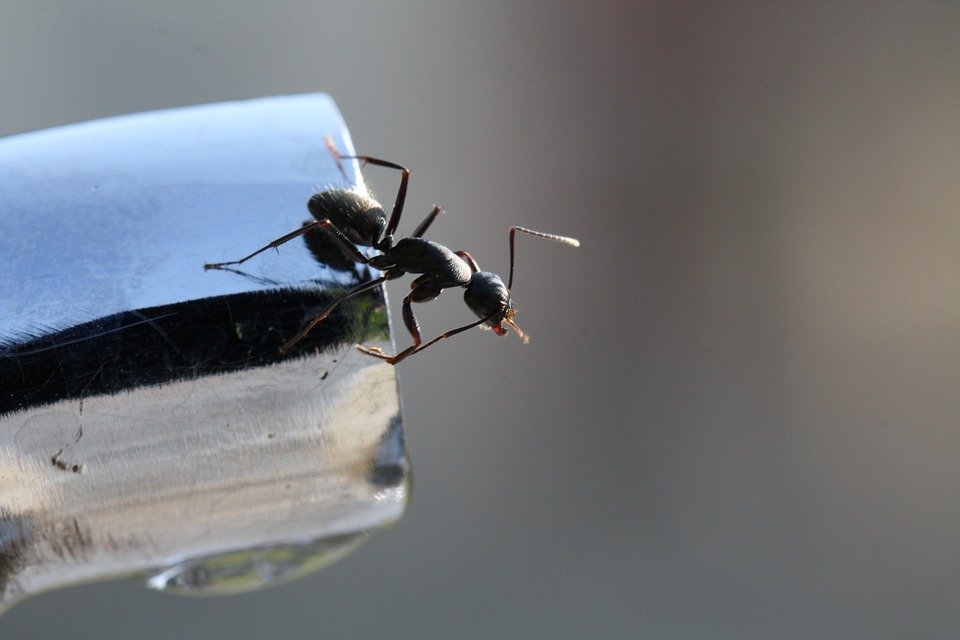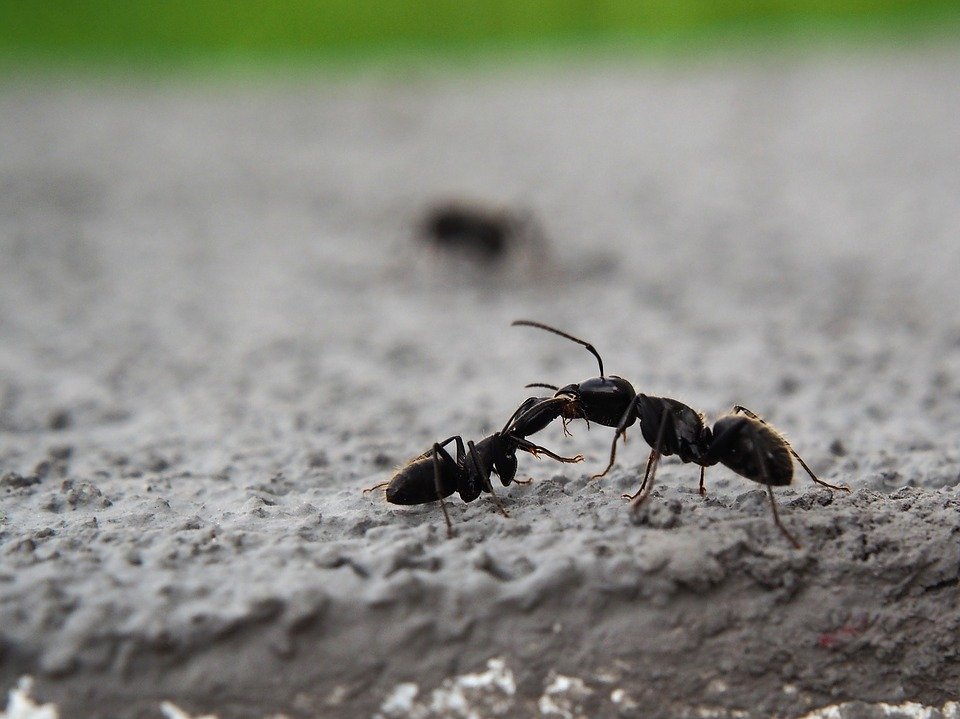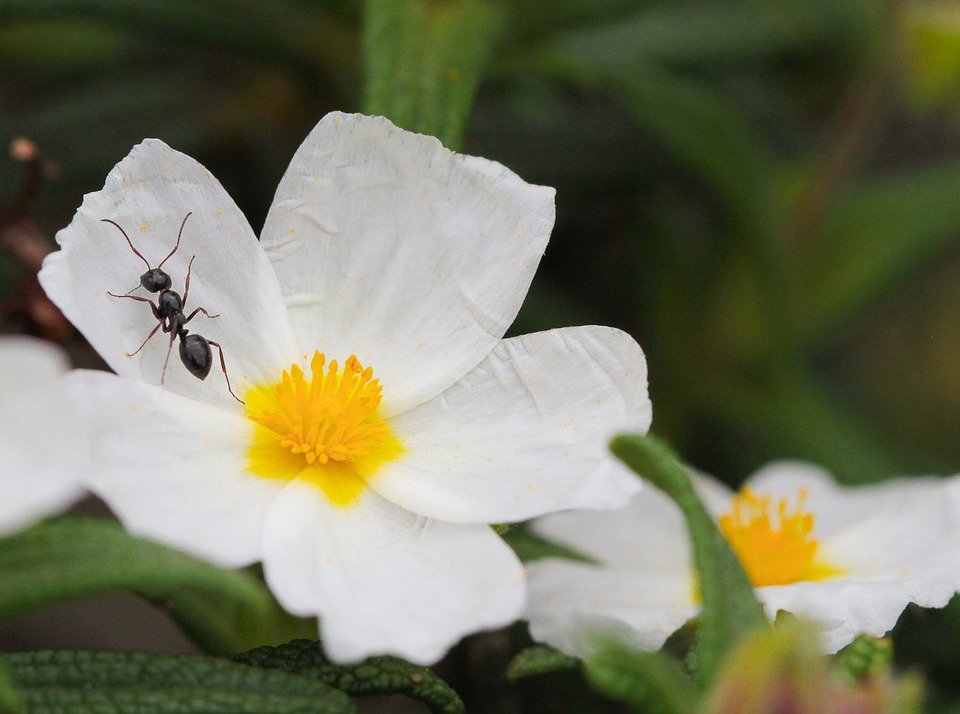Yes, the word antsy does come from the word ant.
The dictionaries will tell you that it means restless, and that it comes from the expression have ants in one's pants. I am sure having ants in the pants would make you a little restless.
Now I don't have ants in my pants at the moment, but they happen to be frequent visitors in my mind. I have been planning to learn more about these nifty little creatures for a very long time, and today is the day I have started doing it.
"What is so special about ants?" I hear you ask.
I am glad you asked. Let's begin.

To leap or not to leap... into the world of ants
There are way too many of them in the world.
The sheer number of ants in the world demands some attention. While nobody has exact numbers, an estimated 20,000 species live in six continents; Antarctica is too cold for their survival. The total number of individuals is an even greater question, as estimates range from 100 trillion to 10,000 trillion. In any case, that is quite a huge number compared to the number of humans which is about 7 billions. A frequently debated question about whether ants outweigh humans is discussed in this article in the BBC news magazine.
If you did not want to read that article, the answer is "probably not at present because human beings are getting heavier and numerous, but the ants did outweigh us a couple of centuries ago."
In any case, there are a lot of ants for every human being there is. A number you would be very uncomfortable having in your pants.
 The duel
The duel
They live in complex societies.
Ants live in colonies where the societies have a fascinating system for division of labour. The queen is the fertile female who mates with fertile males called drones whereas the workers and soldiers are sterile females. The ant colony is sometimes called a super-organism because the colony itself functions like an organism of which the individuals behave like organs.
For example, the colony cannot survive if the queen dies. And things don't work if there are multiple queens. The workers will bring about a revolution and kill all the queens except one who survives to become the ruler. And sometimes they will get a little bit too excited and kill all the queens so that the whole colony dies.
That reminds me of nuclear warfare.
And everything is regulated by chemical signaling, which makes their actions appear mechanical. (Oh well, we are probably all machines anyway.)
The parallels between human beings (or human systems) and ant colonies have been made by numerous scientists and authors. One particular philosophical piece called Prelude...Ant Fugue by Douglas Hofstadter considers how the colony seems to be more than the sum of its parts. "Individual ants are stupid", a character says (not in these words), "But the colony greets me when it sees me."
In my future posts, I will also be talking about this story and other works having to do with ants.
They do interesting/weird/funny/evil stuff
Some ants go pirating and get slaves to work for them. And then they use the slaves to go and fight a war to get more slaves. Speaking of fights, they have well-coordinated wars in which they will attack a neighboring colony and kill everyone and bring back the spoils. If you do not mind watching some disturbing ant violence, here is a war movie, no less.
 Life is beautiful... for some of us
Life is beautiful... for some of us
So we get it that they do a lot of killing and dying. What do they do with the dead bodies? It is an important question if you remember that the total weight of ants is comparable to the total weight of human beings on earth. Apparently, they like to keep their homes dead-free, and once they detect the death-chemical (oleic acid) on an ant, the alive ones will carry it out and dump it on a pile of the dead.
Since this is all chemically stimulated, they will carry out and dump anything that has the death-chemical on it. Yes, even ants that are alive. Scientists appear to have had much fun dipping live ants in oleic acid and watching them being thrown into the pile of the dead (kicking all the time, I'm sure). A recent study has shown how this behavior helps the ants increase their lifespans. If they do not dump their dead, they get microbial infections and the colony dies quicker.
Does that answer your question? The question was why bother to think about ants at all.
I have acquired a book called Secret Lives of Ants by Jae C. Choe, and it has three parts in it -- they are called the economics of ant society, the culture of ant society, and the politics of ant society. The epilogue is called to know them is to love them.
I will be reading the book and writing about interesting ant facts from time to time here. They will mostly be my thoughts on what I read rather than dry facts. I will be trying to see parallels between the world of men and ants if that is possible, and if not, I will simply try to enjoy learning a little bit more about the world we live in.
Let me know what you find interesting about ants (or anything for that matter) in the comments.
The links for the original sources are provided in-line. If you would like general information on the topic, consider reading the Wikipedia articles on ants, ant colony, and superorganism. The images are from pixabay.com.
